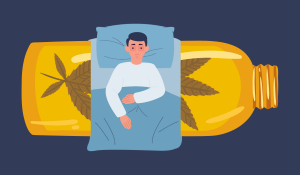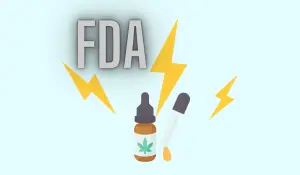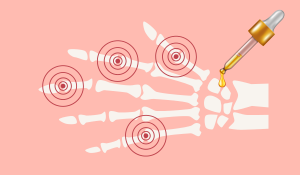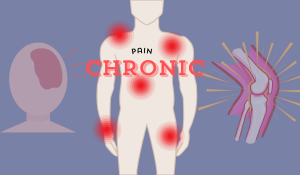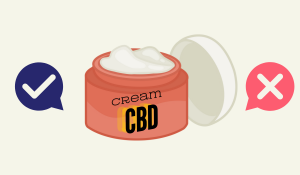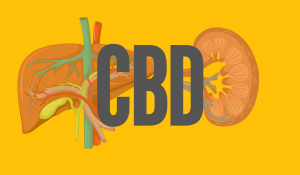Therapeutic Uses of CBD
Managing Chronic Pain with CBD
Struggling with chronic pain? CBD might help.
Studies suggest it can reduce inflammation and alleviate discomfort, offering a potential alternative to traditional painkillers. For instance, a study published in the
European Journal of Pain demonstrated that
CBD applied on the skin could help lower pain and inflammation due to arthritis.
CBD’s Role in Anxiety and Depression
Anxiety dragging you down?
CBD has shown promise in reducing anxiety and improving mood. It’s not a cure-all, but it could be a valuable part of your wellness toolkit. A 2019 study in
The Permanente Journal found that 79% of participants experienced reduced anxiety after CBD use.
Epilepsy Treatment and CBD
Perhaps the most well-known use of CBD is in treating epilepsy. The
FDA even approved a CBD-based drug called Epidiolex for certain types of seizures, highlighting its medical potential. This approval was groundbreaking and opened doors for further research into CBD’s long-term effects on neurological conditions.
How long does it take to feel the effects of CBD?
It varies per individual and the method of consumption. Sublingual oils may take effect within 15-30 minutes, while edibles can take 30 minutes to 2 hours. Consistent long-term use may be necessary to experience certain benefits.
Long-Term Benefits of CBD
Neuroprotective Effects Over Time
Could CBD protect your brain? Some research suggests long-term use might safeguard neural pathways, potentially delaying the onset of neurodegenerative diseases like Alzheimer’s and Parkinson’s. By reducing oxidative stress and inflammation, CBD may help maintain brain health over time.
Anti-Inflammatory Properties
Inflammation is at the root of many chronic illnesses. CBD’s anti-inflammatory effects could play a role in long-term health by reducing systemic inflammation. This could have implications for conditions like autoimmune diseases and even some forms of cancer.
Cardiovascular Health Impacts
Heart health matters. Preliminary studies indicate that CBD may lower blood pressure and improve arterial function, contributing to better cardiovascular health over time. A 2017 study published in
JCI Insight found that a single dose of CBD reduced resting blood pressure and the blood pressure response to stress.
Potential Long-Term Risks of CBD
Liver Function and CBD Use
Is your liver at risk?
High doses of CBD might affect liver enzymes. Some studies have shown elevated liver enzymes in patients taking CBD, especially at higher doses. It’s crucial to monitor liver function during long-term use, particularly if consuming large quantities.
Drug Interactions to Be Aware Of
Mixing medications? CBD can interact with certain drugs, altering their effectiveness. It affects the cytochrome P450 enzyme system, which metabolizes many medications. Always discuss with your doctor to avoid unwanted side effects.
Tolerance and Dependence Concerns
Worried about getting hooked? While CBD isn’t considered addictive, some wonder if tolerance builds over time. Current evidence suggests minimal risk, but more research is needed to fully understand long-term dependence and tolerance.
Does CBD show up on drug tests?
Pure CBD typically doesn’t, but some products contain trace amounts of THC, which might appear on a drug test. Opt for broad-spectrum or isolate products if this is a concern.
Dosage and Administration
Determining the Right Long-Term Dosage
How much is too much? Finding the optimal dose varies per individual. Start low and go slow—adjusting as needed under professional guidance ensures safety. Factors like body weight, metabolism, and the condition being treated all play a role in determining the right dosage.
Various Forms of CBD Products
Oils, gummies, creams—oh my! The form you choose can affect absorption and convenience. Here’s a quick rundown:
-
- Oils and Tinctures: Versatile and fast-absorbing.
-
- Capsules and Edibles: Convenient and discreet.
-
- Topicals: Targeted relief for muscle and joint pain.
-
- Vapes: Quick absorption but potential respiratory risks.
Explore different options to find what fits your lifestyle best.
Personal Experiences with Long-Term CBD Use
Testimonials from Long-Term Users
Real people, real stories. Many users report sustained benefits from long-term CBD use, including improved sleep and reduced anxiety. For instance, John, a 52-year-old veteran, credits CBD for helping him manage chronic pain and PTSD symptoms, enhancing his quality of life.
Expert Opinions and Insights
What do the pros say? Healthcare experts emphasize the importance of quality products and personalized dosing when considering long-term CBD use. Dr. Sarah Mitchell, a neurologist, states, “While CBD shows promise, it’s essential to use high-quality products and consult with healthcare providers, especially for long-term use.”
Regulatory and Quality Considerations
Importance of Third-Party Testing
Trust but verify. Third-party testing ensures the product’s purity and potency, protecting you from contaminants and misinformation. Always look for a Certificate of Analysis (COA) when purchasing CBD products.
Decoding Product Labels and Certifications
Labels can be confusing. Here’s what to look for:
-
- Full-Spectrum vs. Isolate: Full-spectrum contains other cannabinoids and terpenes, potentially enhancing effects.
-
- THC Content: Should be less than 0.3% for hemp-derived products.
-
- Organic Certifications: Indicate the absence of synthetic pesticides.
Understanding these labels helps you make informed choices about your CBD products.

